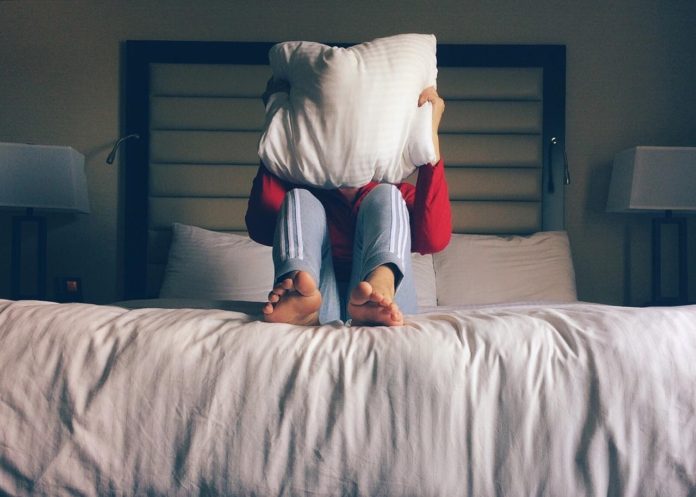Mental health is complicated and can involve countless factors. But one of the biggest influences over mental health outcomes is the quality of sleep you get—and how much you enjoy each night. Therefore, improving your sleep habits can help you boost mental health. Here’s how to promote better rest for your health.
Employ Natural Remedies
If you struggle to relax and fall asleep at night, your circadian rhythm might be “off”—an issue that has significant health implications. Taking natural steps to restore the balance might help.
1. Try Soothing Essential Oils
Many people swear by aromatherapy and essential oil treatments for many ailments. For the most part, the research is yet undecided on the subject. But preliminary studies suggest that using essential oils like lavender, cedarwood, and bergamot, for example, may help reduce stress.
2. Stretch and Decompress Before Bed
Stretching before bed helps soothe sore muscles and prevent morning pain. But it can also help you develop mindfulness, which may improve your sleep. Add stretching exercises right before bed to get you in the mood for relaxation.
3. Add Melatonin to Your Routine
If you struggle with significant disruptions to your circadian rhythm, using supplements like melatonin may help. Over-the-counter melatonin mimics your body’s natural hormone, potentially helping to relieve insomnia and sleep-wake cycle disturbances, says Mayo Clinic.
Aim for Lower Stress Overall
Sleep and stress often have a tumultuous relationship. Research shows that people who get less sleep are more stressed. At the same time, stress can keep you awake at night, says Harvard Health. Try these strategies to reap the benefits of relaxation.
4. Practice Yoga for Stress Reduction
Most people who practice yoga highlight that it helps them to relieve stress. Incorporating the practice into your daily routine may help you reach your fitness goals, too. To reap the greatest benefits of yoga, you can connect your breathing and mindfulness strategies to the physical movements.
5. Learn to Meditate to Focus on Inner Positivity
Meditation is a centuries-old technique that people use to practice mindfulness. Spending time in a quiet environment and concentrating on positive thoughts can allow you to release stress and reflect inward.
Use Your Sleep Equipment Properly
Did you know there’s a wrong way to sleep? Think about adjusting your sleep equipment and routine—it just might help you get better rest.
6. Shop for a New Bed
Most people keep sleeping on their mattress long after its useful life has ended. The good news is that replacing your bed might not be as tough on your budget as you may think. Beds like DreamCloud mattresses, for example, are firmer options that cater to all body types.
Whether you’re a back or stomach sleeper, a DreamCloud mattress offers plenty of support for neutral alignment (which helps prevent back pain and soreness). Other beds like Purple cater to side sleepers while keeping them in proper alignment.
7. Sleep the Right Way
Speaking of alignment, there is a wrong way to toss and turn—and that’s tossing and turning. When you lie down for the night, you shouldn’t stretch and strain. Instead, you should roll your entire body to move in the bed. Doing so can help reduce or prevent back pain, allowing you to sleep more deeply.
In general, the best sleeping position for back pain tends to be side-lying with support between your knees. But any way you rest, choosing a supportive sleep surface is a vital first step.
While better sleep isn’t a cure-all for every mental health challenge, it can make a positive impact. Plus, all areas of your life benefit from better sleep habits—so you have nothing to lose by incorporating these strategies into your everyday routine.
Photo via Pixabay





